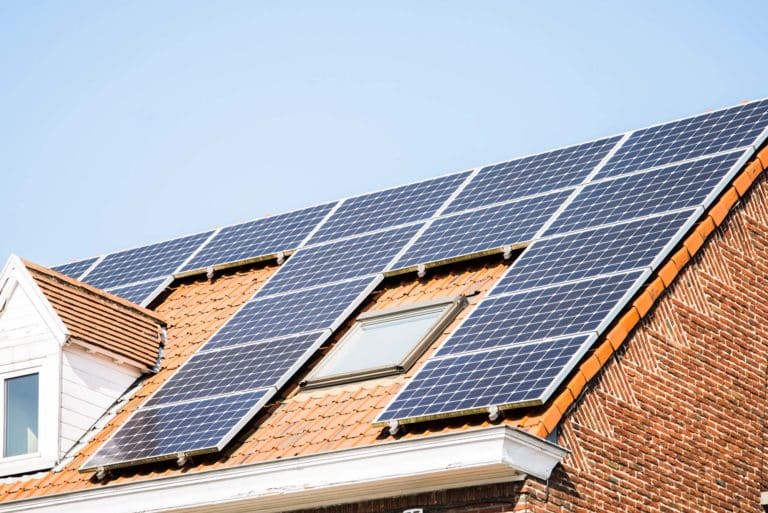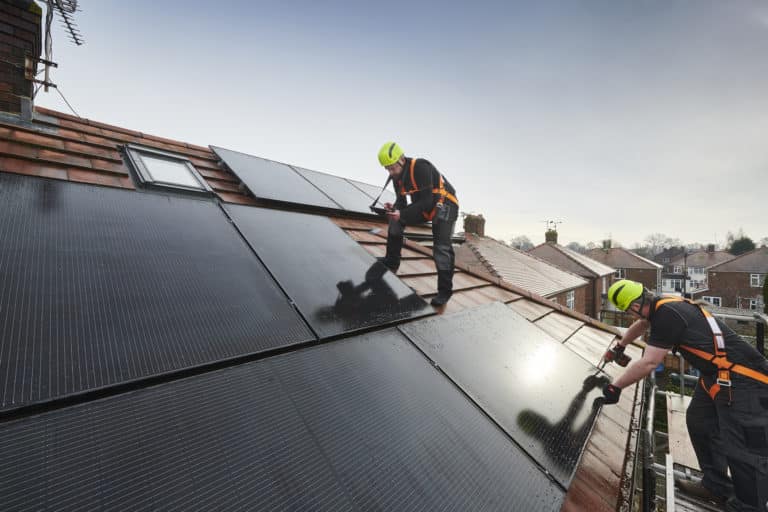With the option of having a battery fitted in conjunction with your solar, excess energy can be stored for nighttime use or sold back to the grid, and vice versa if your panels aren’t producing enough energy.
Solar panels are a great option of additional cost effective energy to heat your home or use day to day electrical utilities. Having a battery means you can then store that energy up, but not required if you wanted solar panels only.
Whether your existing heating system is in need of some TLC, or its days are over and you require a fresh face to power your house...
Nu Age can look after your boiler and central heating system.



Solar panels work by converting sunlight into electricity through photovoltaic cells. When sunlight hits these cells, they generate direct current (DC) electricity, which is then converted into alternating current (AC) electricity using an inverter for use in homes or businesses.
The cost of solar panels in the UK can vary depending on factors such as the size of the system, quality of the panels, and installation costs. On average, a residential solar panel system can cost between £4,000 to £8,000.
Solar panels can help homeowners reduce their electricity bills, lower carbon emissions, and contribute to a cleaner environment. They can also increase the value of a property and provide a source of renewable energy.
Solar panels can be installed on most residential properties in the UK, but factors such as roof orientation, shading, and available roof space can affect their suitability. A professional solar installer can assess your home to determine its suitability for solar panel installation.
Solar panels require minimal maintenance, typically limited to occasional cleaning to remove dirt and debris. It's recommended to have them inspected by a professional installer every few years to ensure they're performing optimally.
Solar panels are designed to last for 25 years or more, with many manufacturers offering performance warranties for this duration. Over time, their efficiency may decrease slightly, but they can still continue to generate electricity beyond their warranty period.
The size of the solar panel system you need depends on factors such as your electricity consumption, available roof space, and budget. A professional solar installer can assess your requirements and recommend an appropriate system size.
While solar panels are most effective in direct sunlight, they can still generate electricity on cloudy days. However, their output may be reduced compared to sunny days.
The UK government offers incentives such as the Smart Export Guarantee (SEG) for homeowners who generate renewable electricity, including solar power. Under the SEG, you can receive payments for the surplus electricity you export to the grid. Additionally, there may be grants or subsidies available for certain installations.